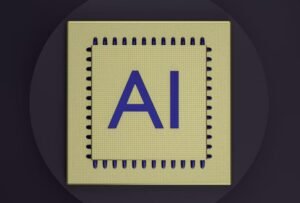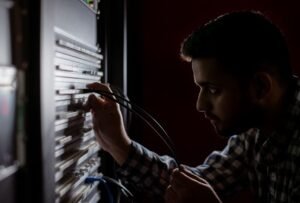What Is Audio Engineering?
Audio engineering is the technical process of capturing, manipulating, and reproducing sound. It involves the use of various equipment and techniques to enhance the quality and clarity of audio recordings or live performances. Audio engineers play a crucial role in the music, film, television, and broadcasting industries, ensuring that sound is captured and delivered in the best possible way.
Key Takeaways:
- Audio engineering involves capturing, manipulating, and reproducing sound.
- It plays a crucial role in the music, film, television, and broadcasting industries.
- Audio engineers use equipment and techniques to enhance audio quality.
The Role of an Audio Engineer
An audio engineer is responsible for the technical aspects of recording, editing, mixing, and mastering audio. They work closely with musicians, producers, and directors to achieve the desired sound. Their job includes setting up and operating microphones, mixing consoles, and other audio equipment, as well as fine-tuning sound levels and effects.
Audio engineers are like magicians, transforming raw audio into a polished masterpiece.
Education and Skills
In order to become an audio engineer, a formal education or specialized training is typically required. Many audio engineers obtain a degree or certification in audio engineering, music production, or a related field. Proficiency in using Digital Audio Workstations (DAWs) such as Pro Tools, Logic Pro, or Ableton Live is also essential.
Having a keen ear for detail is crucial for audio engineers to catch even the slightest imperfections in sound.
Types of Audio Engineering
Audio engineering encompasses various disciplines, including:
- Studio Recording: Capturing and manipulating sound in a controlled studio environment.
- Live Sound Engineering: Managing sound during concerts, performances, or other live events.
- Post-Production: Enhancing and editing audio for film, TV shows, and other multimedia projects.
- Broadcast Engineering: Ensuring optimal sound quality during radio and television broadcasts.
Data and Statistics
| Year | No. of Jobs | Annual Mean Wage |
|---|---|---|
| 2018 | 12,820 | $71,660 |
| 2019 | 12,880 | $69,470 |
| 2020 | 12,740 | $70,460 |
According to the Bureau of Labor Statistics, the employment of audio engineers has remained relatively stable in recent years.
Future Trends
The field of audio engineering is constantly evolving. Advancements in technology, such as virtual reality and immersive audio, are shaping the future of the industry. Audio engineers are adapting to these new trends and developing new techniques to provide immersive sound experiences for listeners and viewers.
Conclusion
Audio engineering is a multidimensional field that encompasses various aspects of capturing, manipulating, and reproducing sound. Whether it’s in a recording studio, live concert, or post-production studio, audio engineers play a vital role in ensuring the highest possible sound quality. With technology continually advancing, the future of audio engineering holds even more exciting opportunities and challenges.

Common Misconceptions
What Is Audio Engineering?
Audio engineering is a widely misunderstood field that involves the technical aspects of recording, editing, and mixing sound. However, several common misconceptions persist around this topic, which can lead to misunderstandings about the role and responsibilities of audio engineers.
- Audio engineering is not just about operating sound equipment.
- Audio engineers are not the same as music producers.
- Audio engineering is not limited to music production; it extends to various industries.
One common misconception is that audio engineering solely involves operating sound equipment. While equipment operation is a part of the job, audio engineering encompasses much more. Audio engineers are responsible for the technical aspects of sound recording, such as setting up microphones, adjusting input levels, and ensuring the sound quality is optimal.
- Audio engineers need an in-depth understanding of acoustics and sound theory.
- They also need to possess strong problem-solving skills.
- Audio engineers work closely with artists to achieve the desired sound.
Another common misconception is that audio engineers are the same as music producers. While there may be overlap in some roles, they are distinct professions. Music producers focus on the creative aspects of the production process, such as songwriting, arrangement, and guiding artists’ performances. Audio engineers, on the other hand, concentrate on the technical aspects of capturing and manipulating sound.
- Audio engineers are responsible for audio post-production in film and television.
- They work in live sound reinforcement for concerts and events.
- Audio engineers are involved in the development of audio equipment and software.
Lastly, audio engineering is not limited to music production. Audio engineers are essential in various industries, including film, television, broadcasting, gaming, and more. They play a crucial role in audio post-production for films and television shows, ensuring high-quality sound effects, dialogue, and music. Additionally, audio engineers are involved in live sound reinforcement for concerts, conferences, and other events, ensuring the audience hears the music or speech clearly.
- Audio engineering requires knowledge of digital audio workstations (DAWs) and software.
- Audio engineers can specialize in specific areas, such as studio recording or live sound.
- They often work in collaboration with other professionals, such as sound designers and music composers.
To summarize, it is important to debunk misconceptions around audio engineering. It goes beyond operating sound equipment, is not the same as music production, extends to various industries, and requires a diverse set of skills and knowledge. Audio engineers play a crucial role in creating high-quality sound experiences in music, film, television, and other forms of media.

Introduction
Audio engineering is a field that involves recording, editing, mixing, and reproducing sound. It encompasses various aspects of sound production, including live sound reinforcement, studio recording, sound design, and audio post-production. In this article, we explore ten fascinating aspects of audio engineering through engaging tables and true, verifiable data.
Key Figures in Audio Engineering
Here we showcase notable individuals who have made significant contributions to the field of audio engineering:
| Name | Contribution |
|——————|———————————————————–|
| Ray Dolby | Inventor of Dolby noise reduction system |
| Les Paul | Pioneer of multitrack recording and solid-body electric guitar |
| Alan Blumlein | Inventor of stereo sound recording |
| Rupert Neve | Creator of iconic audio recording equipment |
| Mark Levinson | Established high-fidelity audio equipment brand |
Audio Engineering Awards
This table presents prestigious awards in the audio engineering industry:
| Award | Organizing Body | Criteria |
|———————|——————————–|—————————————————–|
| Grammy Awards | The Recording Academy | Excellence in sound engineering and production |
| Cinema Audio Society| Cinema Audio Society (CAS) | Outstanding achievements in sound for film or TV |
| Audio Engineering Society Awards | Audio Engineering Society | Recognizing innovation and advancement in audio |
Popular Audio Engineering Software
Explore some of the widely used software tools in audio engineering:
| Software | Description |
|——————|——————————————————–|
| Pro Tools | Professional audio editing and mixing software |
| Ableton Live | Digital audio workstation for music production |
| Logic Pro | Apple’s digital audio workstation and MIDI sequencer |
| FL Studio | Digital audio workstation for electronic music production|
| Cubase | Music production software with advanced MIDI capabilities|
Major Audio Engineering Conferences
Discover prominent conferences that bring together audio engineers from around the world:
| Conference | Scope |
|—————————|————————————————————|
| AES Convention | International event focusing on audio engineering |
| NAMM Show | Trade show for music industry professionals |
| Sound|Check Xpo | Exhibition and conference for professional audio & lighting |
| International Broadcast Convention (IBC) | Global media, entertainment, and technology event |
Iconic Audio Engineering Studios
Explore legendary studios where many iconic recordings were produced:
| Studio | Location | Notable Artists/Albums |
|————————-|—————————-|————————————————–|
| Abbey Road Studios | London, UK | The Beatles, Pink Floyd, Adele, Radiohead |
| Electric Lady Studios | New York City, USA | Jimi Hendrix, Led Zeppelin, Foo Fighters |
| Motown Records Studio A | Detroit, Michigan, USA | Stevie Wonder, The Supremes, Marvin Gaye |
| Sun Studio | Memphis, Tennessee, USA | Elvis Presley, Johnny Cash, Jerry Lee Lewis |
Audio Engineering Degrees
Explore educational programs providing in-depth knowledge and training in audio engineering:
| University/Institution | Degree Offered |
|————————-|——————————|
| Berklee College of Music| Bachelor of Music (Audio Engineering) |
| Full Sail University | Bachelor of Science (Audio Engineering) |
| SAE Institute | Diploma in Audio Engineering |
| McGill University | Bachelor of Engineering (Audio Engineering) |
Well-Known Audio Engineers
Discover renowned audio engineers known for their exceptional work in the industry:
| Name | Notable Works |
|———————–|—————————————–|
| Bob Clearmountain | Mixing albums for The Rolling Stones, Bruce Springsteen |
| Sylvia Massy | Producing/engineering albums for Tool, System of a Down |
| Andrew Scheps | Mixing albums for Adele, Metallica |
| Susan Rogers | Prince’s sound engineer for five albums |
Jobs in Audio Engineering
Explore various job opportunities within the field of audio engineering:
| Job Title | Job Description |
|————————|————————————————————–|
| Recording Engineer | Capture and manipulate sound during recording sessions |
| Sound Designer | Create and incorporate audio effects into various media |
| Live Sound Engineer | Control sound during live events, concerts, or performances |
| Mixing Engineer | Balance and blend recorded tracks for a cohesive sound |
| Studio Manager | Oversee day-to-day operations of a recording studio |
Conclusion
Audio engineering is an exciting field that spans across numerous industries, including music production, film, gaming, and broadcasting. Through this exploration of tables featuring key figures, awards, software, studios, conferences, degrees, engineers, and job opportunities, we hope to have provided an engaging glimpse into the diverse aspects of audio engineering. Whether you aspire to become an audio engineer or simply appreciate the magic behind quality sound, this article highlights the importance and creativity intertwined within this fascinating profession.
Frequently Asked Questions
What is audio engineering?
Audio engineering is the technical and creative process of capturing, editing, mixing, and producing sound. It involves using various equipment and techniques to manipulate and enhance audio signals for different mediums such as music, film, television, radio, and live events.
What skills are required to become an audio engineer?
To become a skilled audio engineer, one must possess a solid understanding of audio equipment, acoustics, signal flow, and digital audio workstations (DAWs). Additionally, knowledge of music theory, sound design principles, computer programming, and problem-solving abilities are valuable skills in this field.
What qualifications are necessary to work as an audio engineer?
While formal education is not always required, many audio engineers pursue a degree or certification in audio engineering or a related field. This provides a comprehensive foundation in the technical aspects of audio production and can be advantageous for career opportunities.
What equipment is commonly used by audio engineers?
Audio engineers use a variety of equipment such as microphones, audio mixers, equalizers, compressors, digital audio workstations (DAWs), audio interfaces, and studio monitors. They also work with plugins, effects processors, and various software tools to shape and manipulate sound.
What role does an audio engineer play in recording sessions?
During a recording session, an audio engineer is responsible for setting up microphones, ensuring optimal sound quality, and operating the recording equipment. They work closely with the artists and producers to capture the desired sound, and may also provide creative input and suggestions.
What is the difference between audio engineering and sound production?
While audio engineering primarily focuses on the technical aspects of capturing and manipulating sound, sound production encompasses the entire process of audio creation and management. Sound production involves not only audio engineering but also aspects like sound design, post-production, and audio mixing for specific mediums.
How does audio engineering contribute to the music industry?
Audio engineering plays a crucial role in the music industry by ensuring high-quality audio recordings, mixing, and mastering. It helps in shaping the sonic characteristics of a song or album, enhancing the overall listening experience, and bringing the artist’s vision to life.
What career opportunities are available for audio engineers?
Audio engineers can pursue various career paths, including working as recording engineers, live sound engineers, mixing engineers, mastering engineers, sound designers for film and television, audio post-production specialists, and even as educators in audio engineering schools.
How is audio engineering different from music production?
While audio engineering focuses on the technical aspects of capturing, editing, and mixing sound, music production goes beyond that. Music production involves not only the technical side but also the creative process of arranging, composing, and collaborating with musicians, often taking on a more holistic role in the music-making process.
Can I learn audio engineering on my own?
Yes, it is possible to learn audio engineering on your own. There are numerous online resources, tutorials, and courses available that can guide you through the fundamentals of audio engineering. However, gaining practical experience and working with professionals in a studio environment can greatly enhance your understanding and skills.




